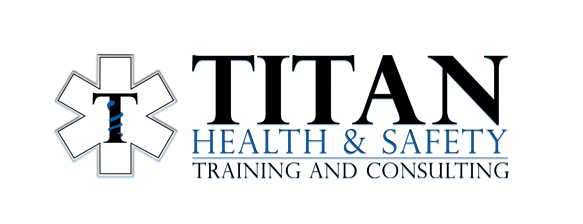This course discusses the hazards associated with operating forklifts (lift trucks or fork lift trucks), and includes a review of: Equipment, material, environmental, and process hazards The responsibilities of employers, supervisors and workers.

This course discusses the hazards associated with operating forklifts (lift trucks or fork lift trucks), and includes a review of:
Equipment, material, environmental, and process hazards
The responsibilities of employers, supervisors and workers
The unusual design and operating characteristics of lift trucks including rear wheel steering, visibility issues and weight
The forklift (lift truck) online program makes participants aware of their legal responsibilities and provides the required information to achieve the theory portion of becoming a competent forklift operator.
This online training program is the first step in order to receive full-certification. Practical, hands-on training within your facility must be completed and approved by your employer in order to receive full certification.
Forklift Training Course Modules:
Hazard Identification
Competency and General Responsibilities
Stability Principles for Forklifts & Lift Trucks
Pre-Operational Checks
Safe Operating Procedures
Fuel Sources
Electric Motor Narrow Aisle Reach Trucks
The stability module includes graphic illustrations of issues around the centre of gravity; and the effect of the stability triangle and pyramid with various load types and mast positions including turning, reversing and braking.
The need for and content of pre-operational checks are thoroughly reviewed using video. Safe operating procedures are covered extensively, including illustrative video. The characteristics of propane, battery (i.e. electric) and diesel fuel sources are included.
Various lift truck classifications are discussed in detail, including:
Class I : Electric Motor Rider Truck
Class II : Electric Motor Narrow Aisle Truck
Class III : Electric Motor Hand Truck or Hand/Rider Truck
Class IV : Internal Combustion Engine Truck (Solid/Cushion Tires)
Class V : Internal Combustion Engine Truck (Pneumatic Tires)
Class VI : Electric & Internal Combustion Engine Tractors
Class VII : Rough Terrain Forklifts (vertical mast, variable reach and Truck mounted)
Upon successful completion, a 3-year Forklift/Lift Truck certificate will be issued. Practical, hands-on training within your facility must be completed and approved by your employer in order to receive full certification.
An employer must ensure that each employee who operates a Lift Truck must have both theoretical and hands-on training in the safety operation and design of a Lift Truck.
18-Month Re-Training Requirement:
Eighteen (18) months after training or re-training, a midterm skills evaluation should be conducted to re-assess the operator’s practical skills and give them any necessary feedback or corrective actions.
Titan Health is owned and operated by a paramedic with many years of experience who recognizes the importance of First Aid and CPR training. Titan Health’s professional instructors are known for their ability to bring hands-on knowledge.
And experience into their classes. Clients will leave the course with a clear understanding of their new skills and the confidence to use them in an emergency situation.
© 2025 coursetakers.com All Rights Reserved. Terms and Conditions of use | Privacy Policy